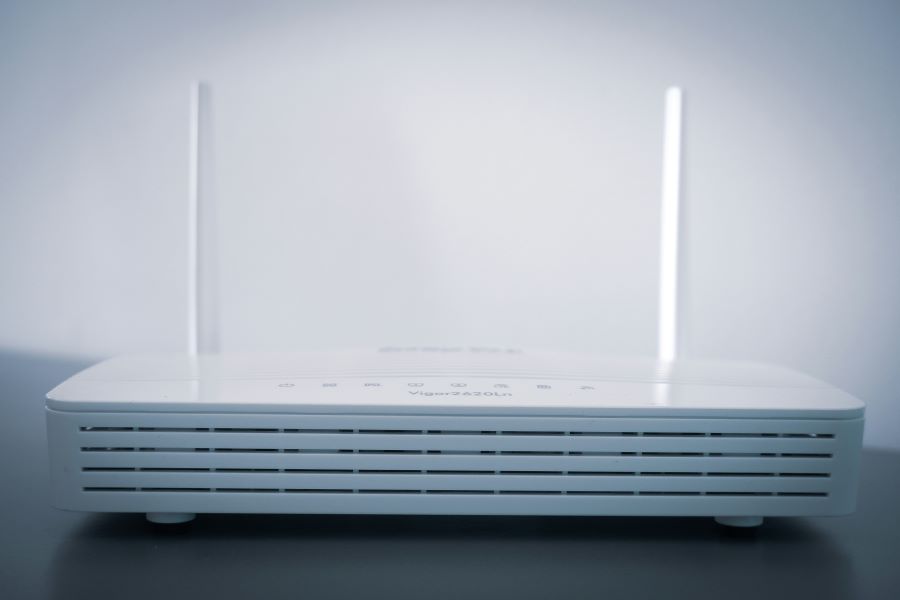If you are a work from home professional or just use internet at home for your entertainment needs, broadband connections have now become very important. Absense of a decent internet network can ruin the whole online experience for you.
Buy Airtel Wi-Fi with exciting benefits!
Moreover, if you start looking at Wi-Fi plans from different service providers, you will see multiple speeds and various plans or packages, but what is right? And what is not? How do you really decide what these different internet speeds mean? Here’s a blog addressing what these different internet speeds, such as download speed, upload speed, and network jitter actually mean, and how they impact broadband connections.
What is Download Speed in your broadband connection?
Download speed refers to the rate at which data is transferred from the internet to your device. It’s a key metric for activities such as streaming videos, downloading files, or browsing websites. A higher download speed means faster access to content and smoother online experiences.
For example, if you have a download speed of 100 megabits per second (Mbps), you can theoretically download a 1 gigabyte (GB) file in approximately 80 seconds. However, it’s essential to note that actual download speeds may vary based on factors like network congestion, distance from the server, and the quality of your broadband connection.
What is Upload Speed in your broadband connection?
Upload speed, on the other hand, refers to the rate at which data is transferred from your device to the internet. It’s crucial for activities like video conferencing, online gaming, and uploading files to the cloud. While upload speed is often slower than download speed in usual broadband packages, it’s still vital for maintaining smooth two-way communication online.
For instance, if you have an upload speed of 10 Mbps, you can upload a 100 megabyte (MB) file in approximately 80 seconds. Just like download speed, factors such as network congestion and the quality of your connection can affect upload speeds.
Read more: How to boost internet speed on your Android phone?
What is network jitter?
Network jitter, also known as latency variation, refers to the variability in the delay of data packets traveling across a network. In simpler terms, it’s the inconsistency or fluctuations in the time it takes for data to travel from one point to another. While download and upload speeds focus on the rate of data transfer, network jitter is about the reliability and consistency of the connection.
High network jitter can lead to issues like choppy video calls, lag in online gaming, and buffering during streaming. It’s particularly problematic for real-time applications that require smooth and uninterrupted data transmission. Minimising network jitter is essential for ensuring a seamless online experience, especially for time-sensitive activities.
Getting frequent network jitter on your existing Wi-Fi connection? Switch over to Airtel Xstream Fiber and get internet speeds up to 1 Gbps, a free router, added OTT benefits such as free Amazon Prime Video, Disney+ Hotstar and much more.
How will the different internet speeds impact my experience?
The internet speeds offered by your broadband connection directly impact your online activities and overall user experience. Here’s how different speeds can affect your regular internet tasks:
Better streaming speeds
Higher download speeds result in faster buffering times and smoother streaming experiences. With a reliable broadband connection and sufficient download speed, you can enjoy high-definition (HD) or even 4K video content without interruptions.
Faster gaming with faster Wi-Fi
Low network jitter and consistent upload/download speeds are crucial for online gaming, where split-second reactions can make a difference. A stable broadband connection with low latency ensures minimal lag and a competitive edge in multiplayer games.
Working from home? Choose a faster broadband connection
Work from home essentially means video conferencing, file sharing, and accessing cloud-based applications, which rely on both upload and download speeds. A broadband connection with adequate bandwidth and low network jitter is essential for seamless remote collaboration and productivity.
Read more: Find out the best internet speed for online gaming
How do you choose the right broadband plan?
When selecting a broadband plan, it’s essential to consider your internet usage patterns, the number of devices connected, and the specific requirements of your online activities. Here are some tips for choosing the right broadband plan:
- Take a count of the number of devices that will be connected to the internet
- Research the various broadband services available near your area
- Make sure to hear about user reviews from existing customers (ask your friends, colleagues, neighbours, etc.)
- Check for any added benefits such as a free Wi-Fi router, OTT subscriptions, unlimited internet and more
Thus, internet speeds are a critical factor in determining the quality of your broadband connection and online experiences. Hopefully, this blog gives you a clear idea of how to decode the different internet speeds.


 Get App
Get App  Airtel Store
Airtel Store  Login
Login 



